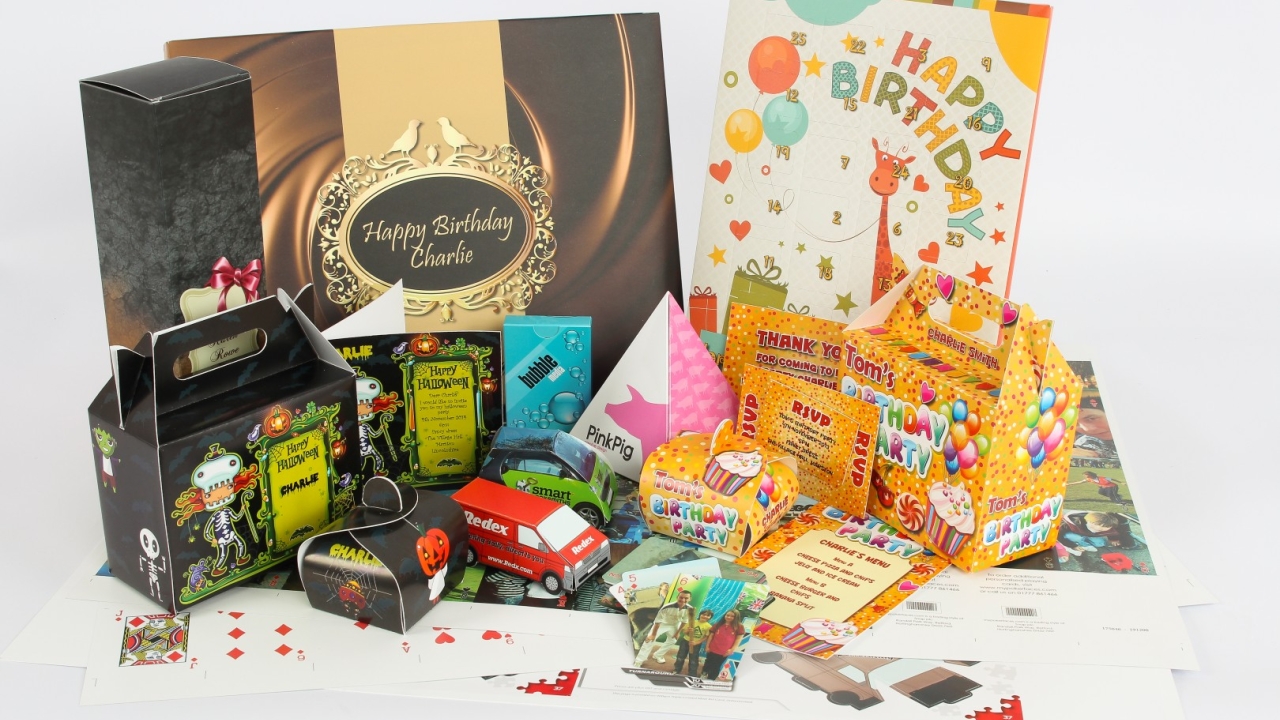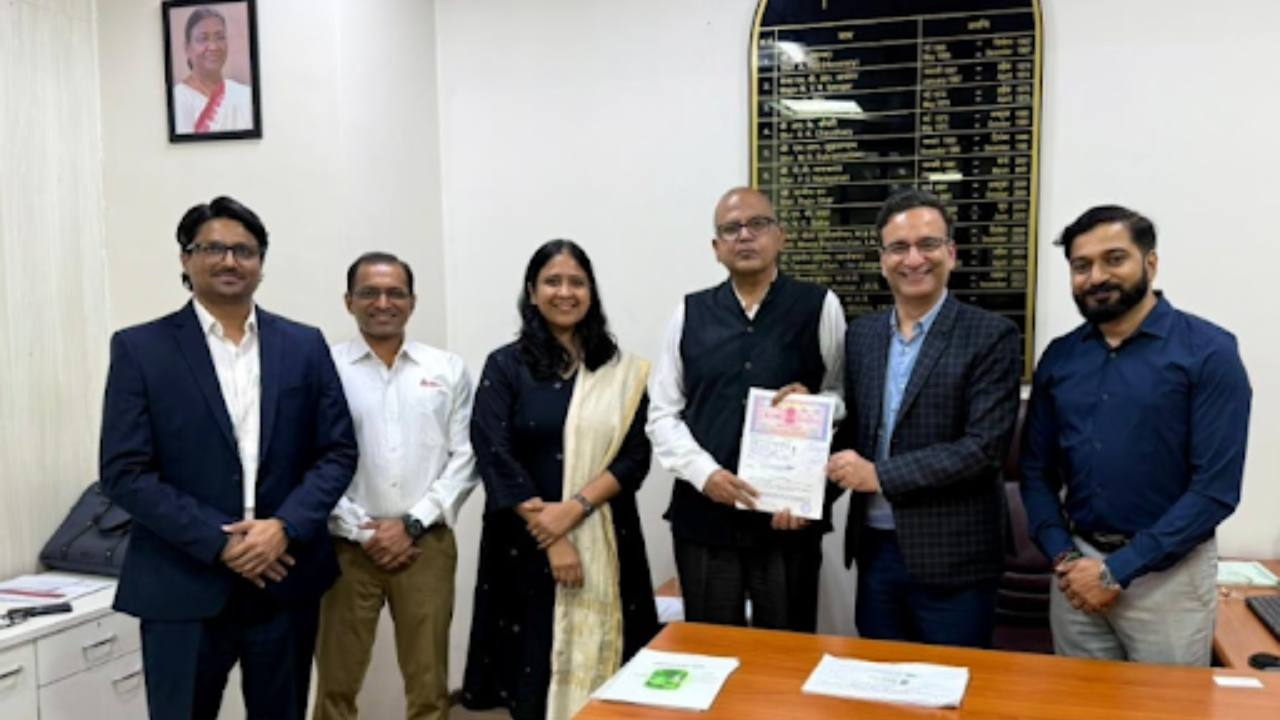Packaging to love

UK printer RCS is using digital printing to create short-run packaging work that appeals to the emotions of consumers. David Pittman spoke to its managing director Michael Todd about packaging to love, and how the trade can benefit.
UK-based printer RCS is on a mission to create a love affair between consumers and personalized packaging.
This involves taking a product that has been commoditized, such as folding cartons, and making them a value-add to the item being bought that consumers are willing to pay for.
The market for personalized packaging is very minimal says RCS managing director Michael Todd, but he hopes it will be a big market in the future for the printer. RCS wants to be at the forefront of its development using digital.
‘There are a huge number of printers using digital in a similar way. We’ve always tried to be different and use technology in innovative ways.’
Todd says personalization also negates concerns about the cost per sheet, which many printers and converters place over and above other issues. ‘One of the first questions I get asked is: “What is the cost per sheet?”. That’s the wrong question; with personalized products you should be asking how much can I charge?
‘Personalization of printed products creates an emotional attachment. That is where the real value lies, and will allow us to charge more per product.
‘Cost should only be an issue if you’re comparing digital against conventional litho presses, but if you’re using a digital press to produce your everyday work you’ve not properly understood the potential.’
Potential of digital
Todd admits that RCS itself has previously slipped into this routine. RCS has long been a convert to digital printing, investing in an early version of the HP Indigo family, and working with other systems from a host of press manufacturers, such as Xeikon, Konika Minolta and Xerox. Todd states ‘Some of these systems have been utilized in the wrong way to produce work that could otherwise have been printed conventionally. We’re determined not to let this happen again.’.
RCS’s most recent investment has been in a Screen Truepress JetSX B2 format unit. Launched at Ipex 2010, Todd was shown the ability of the press to handle sheet-fed heavy board stock, up to 600 microns thick, in a B2 size at Drupa 2012.
‘B2 format digital presses are few and far between, and the ability to print flat is a big bonus as it means we’re able to print thicker materials that are more suited to the packaging market. A lot of digital carton printing is currently done on thinner substrates, which are not always useful to the market.’
He was also shown how using inkjet, which effectively sprays the ink onto the substrate surface rather than rolling it on, the Truepress JetSX can be used to print already cut and creased material.
By printing on material already converted, RCS is able to produce very short runs of different designs and sizes for different applications from carton blanks held in stock, which are then loaded onto the press in the required volume and printed as the final stage, compared to the traditional process of cutting and creasing a printed sheet, which requires set-up time and incurs costs due to the need to produce a die-cutting plate for each version.
Wim Koning, Screen’s EMEA business development manager for the Truepress JetSX, says: ‘Die-cutting is the biggest issue in the production of digitally printed cartons as it does not sit well with the model for personalized printing. It’s a recipe for disaster.
‘Unless you have 20 die-cutting units, each set-up to a specific pattern and only producing that cut, then it is virtually impossible to handle the demands of personalization. I don’t know anyone running 20 die-cutting stations, and I can’t see any other way to create personalized packaging than to covert the material before printing.’
Koning likens the potential of personalized packaging to the market for photobooks. Introduced at the start of this century, photobooks are a relatively recent product that has been introduced to the market and has gone hand-in-hand with the growth in online retail.
‘The market for photobooks didn’t exist 10 years ago but is now worth hundreds of millions of Euros as consumers have become used to the fact that they can produce their own books with personalized images and text.
‘The market for personalized packaging doesn’t currently exist, but the potential is the same. It’s déjà vu.
‘Consumers don’t see the cost as prohibitive, and why wouldn’t they personalize packaging for a little extra cost? For printers, how else can you add £5 to the price of packaging?’
Once more, the term “emotion” is central. ‘Creating an emotional attachment is central to personalization.’
Koning points to gifts for new-born babies as an example of a product category readymade for the introduction of personalized packaging, as friends and family look to add emotional value to presents for new parents.
Reliability
Installed at the start of 2013, Todd notes that RCS has had no unscheduled maintenance periods with the Screen Truepress JetSX, with only scheduled stops for software upgrades and small tweaks held in the first few months of operation.
Todd says: ‘Reliability is paramount for this type of machine. Much like we are determined to avoid running volume-based work on the press, we don’t want it to be out of action half of the time.’
Koning adds that as the Screen digital press can print on unprimed substrates, the value chain is extended at both the start of production, and at the end by making printing the last stage.
Winning the market over
RCS is already starting to see a growing volume of personalized work being run on the press, which it is sourcing from its traditional print reseller customer base, direct orders via web-to-print portals, and through arrangements with overseas trade customers.
In the latter scenario, RCS has started working with a Dutch retailer to produce various products, such as personalized playing cards.
The ability to charge more for a personalized printed product has allowed RCS to print for this European partner as it can afford to take on the business and spend a small amount on shipping, a scenario that would be impossible for volume products and those that can be more easily produced locally.
This relationship was cultivated by Screen who has used its network of contacts to set-up the meeting between Todd and the retailer, and was able to help RCS thoroughly prepare its proposal.
Koning adds: ‘Ultimately it is in Screen’s interest for our customers to be doing well. RCS is very innovative and has developed many excellent new ideas and we are only too pleased to help them create a market for the products they can produce using our technology.’
Screen has also helped RCS manage the production cycle of personalized work by supplying it with workflow technology to support the Truepress JetSX. ‘It’s imperative to automate the production process, especially in print environments that are fed by web-to-print and web-to-pack portals,’ says Koning.
‘New technology creates new opportunities and applications, but the hardest part during the early stages of a market emerging is getting people to understand and see the potential.’
Todd adds: ‘There is a level of education that needs to take place in the market. Many don’t get digital, and don’t understand the benefits it can bring. The packaging market in particular still thinks very much in terms of volume work.’
To aid this education, RCS demonstrated a number of personalized packaging and gift products at the recent North Print & Pack event. It also produced a calendar counting down the final week to the show, which was distributed to 3,000 of those who had registered for the event.
These products also showcased other digital production techniques, namely Scodix image enhancement and the Highcon digital cutting and creasing. The world’s first Highcon Euclid unit has recently been installed at Antilope in Belgium, with fellow UK printer Glossop Cartons taking a unit as well.
‘Like photobooks, it’s difficult to explain the potential over the phone’ says Koning. ‘People need to see it to believe it.’
Todd concludes: ‘We’ve got to build the market for personalized packaging and gifting, and cultivate demand. We’re determined to make it happen, and will be working with the industry and with consumers directly to ensure it does.’
Read more features from Packprint World here
Stay up to date
Subscribe to the free Label News newsletter and receive the latest content every week. We'll never share your email address.

